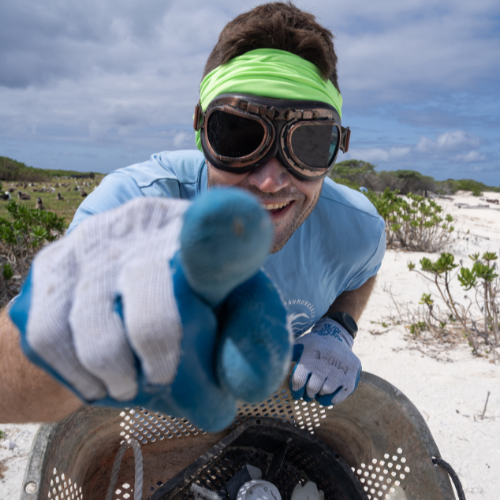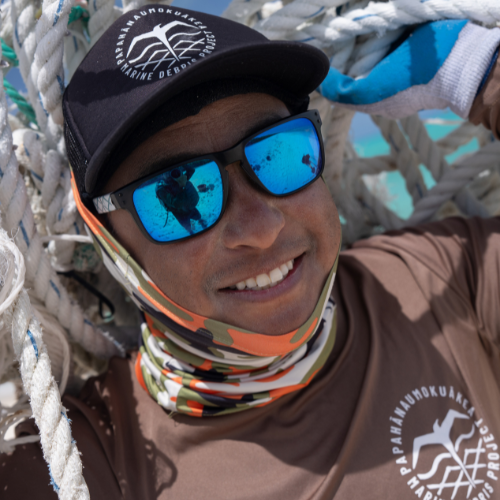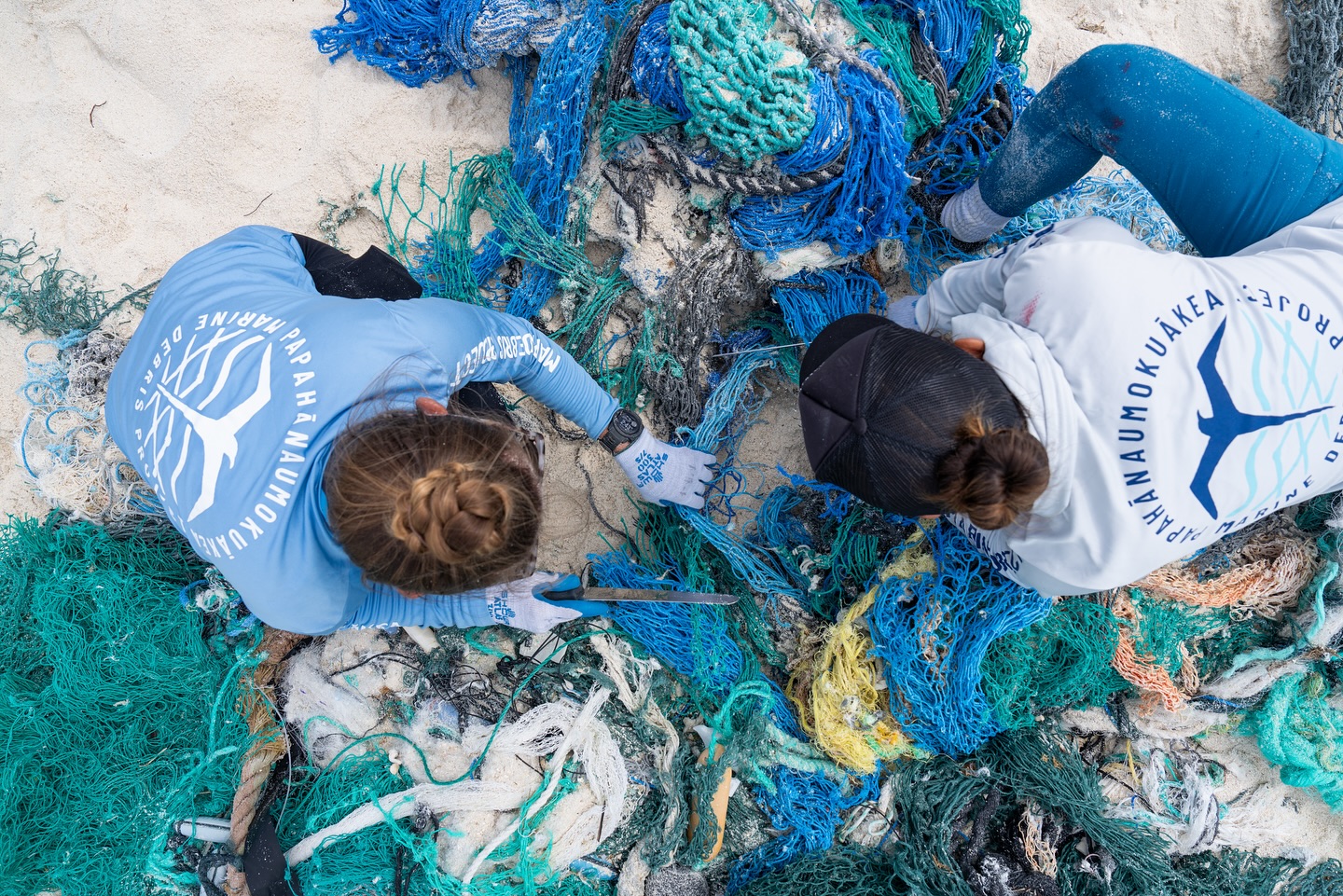Written by James Morioka on Earth Day 2025 as darkness took hold on Kuaihelani/Photos by Andrew Sullivan-Haskins
While much of the world celebrates Earth Day with reusable tote bags, inspirational quotes, and sunset selfies, the Papahānaumokuākea Marine Debris Project (PMDP) celebrates a little differently: sweating profusely, lifting things way too heavy, and dragging monster ghost nets, piece by piece, off the remote shorelines of Eastern Island at Kuaihelani. No filters, no gentle soundtrack. Just the smell of the ocean, the call of seabirds, sand in places it shouldn't be, and a whole lot of determination.
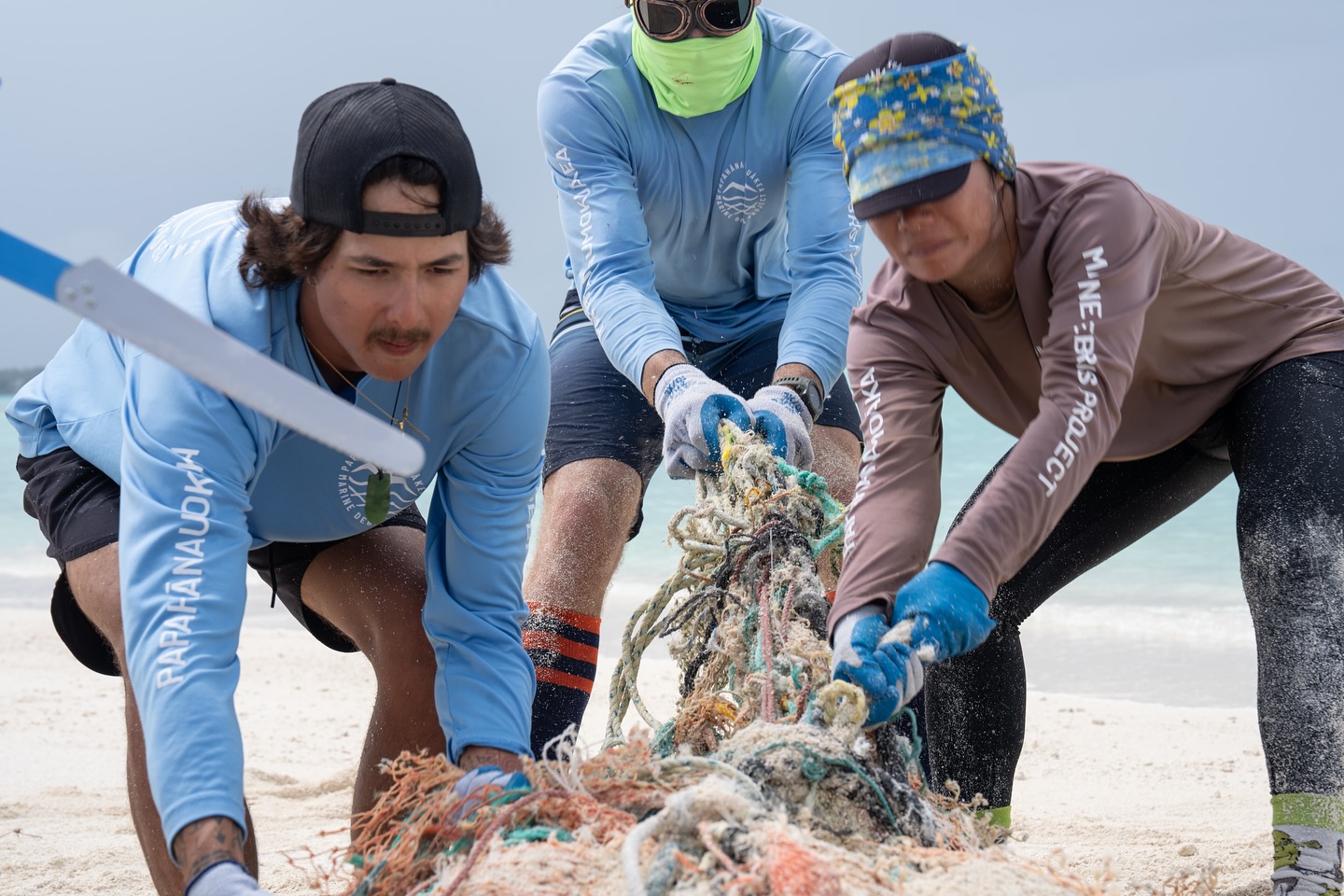
Letʻs be real, PMDP isn't your average beach cleanup crew. We're a specialized team of trained free divers and small boat operators who spend our days removing derelict fishing nets tangled across coral reefs and buried in shorelines that most people will never see, let alone work in.
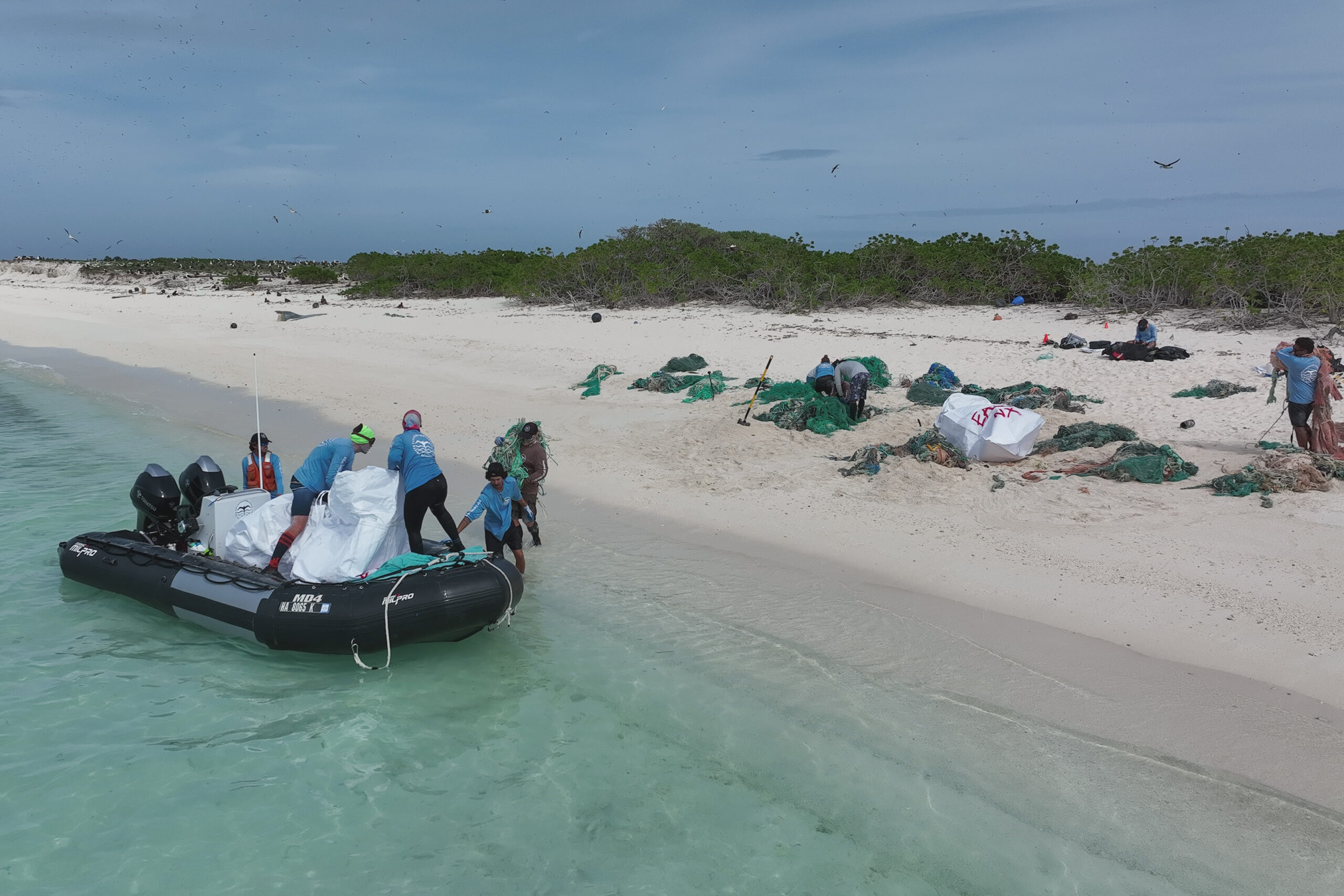
We've traded in our office chairs for small boats, and laptops for dive fins and knives. Our job requires us to navigate complex coral reef passes in unpredictable swell, untangle giant ghost nets from delicate coral heads, and carry thousands of pounds of debris off remote beaches with no roads, no ramps, and definitely no machinery. Just muscle, grit, teamwork, and a few well-time snack breaks.
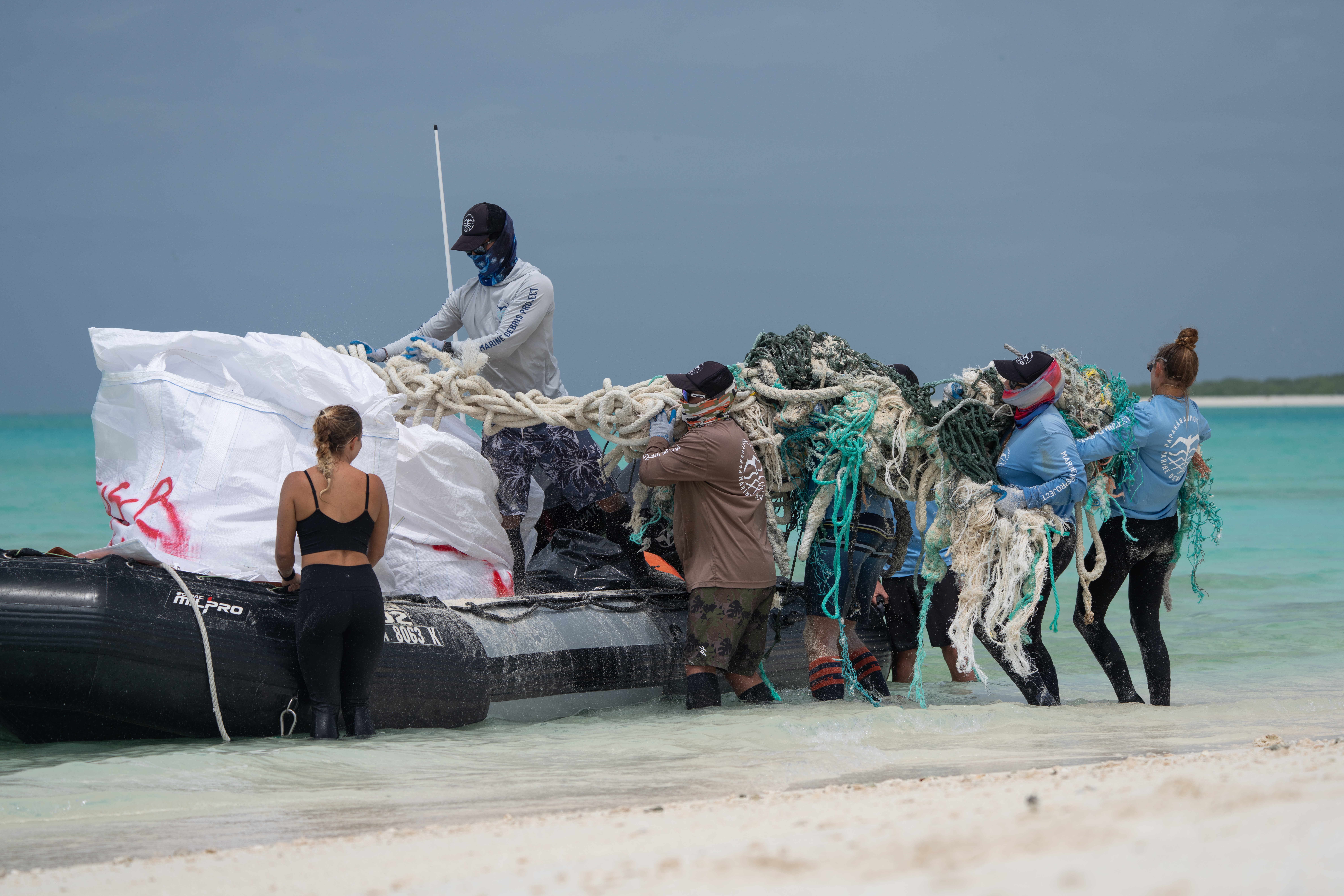
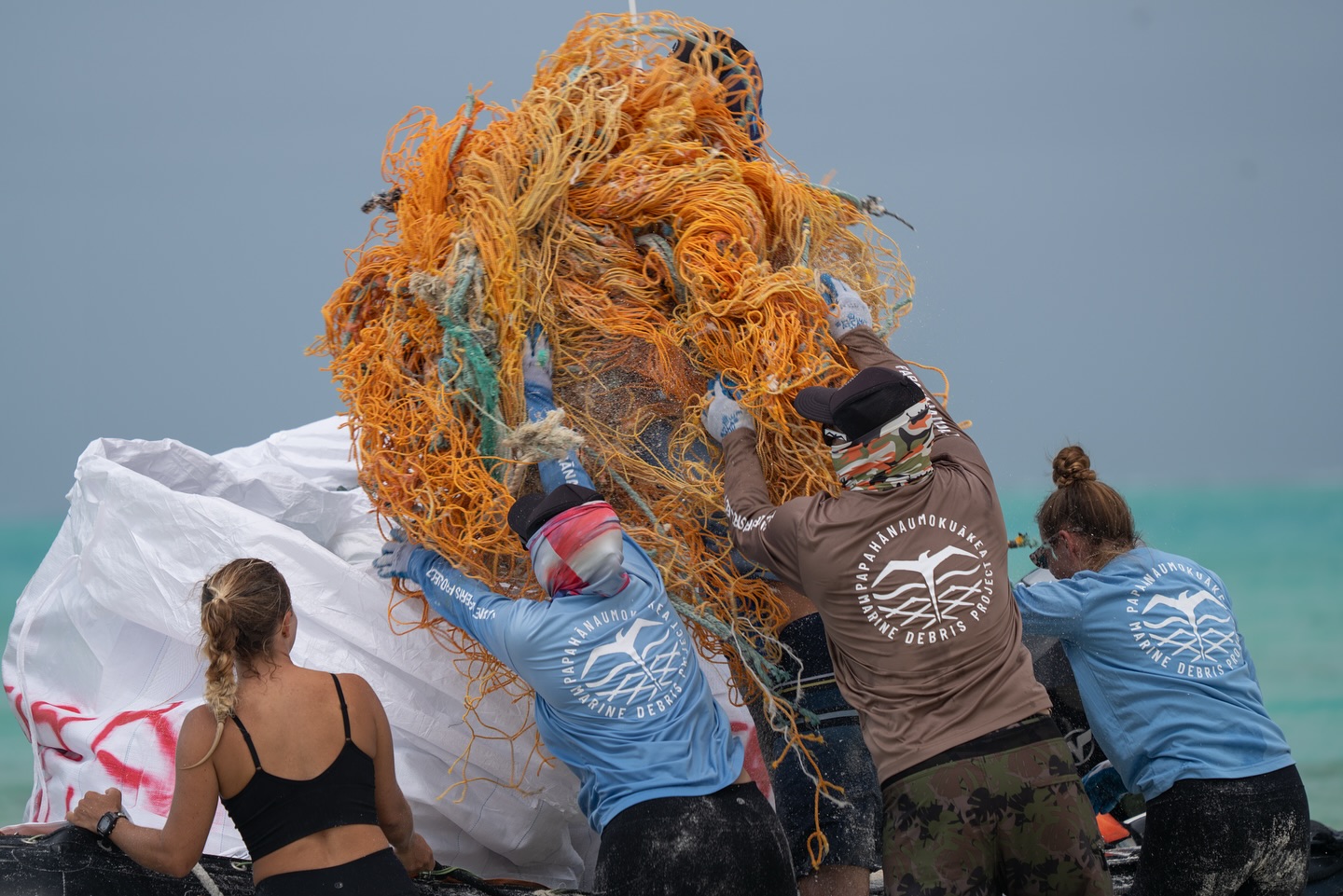
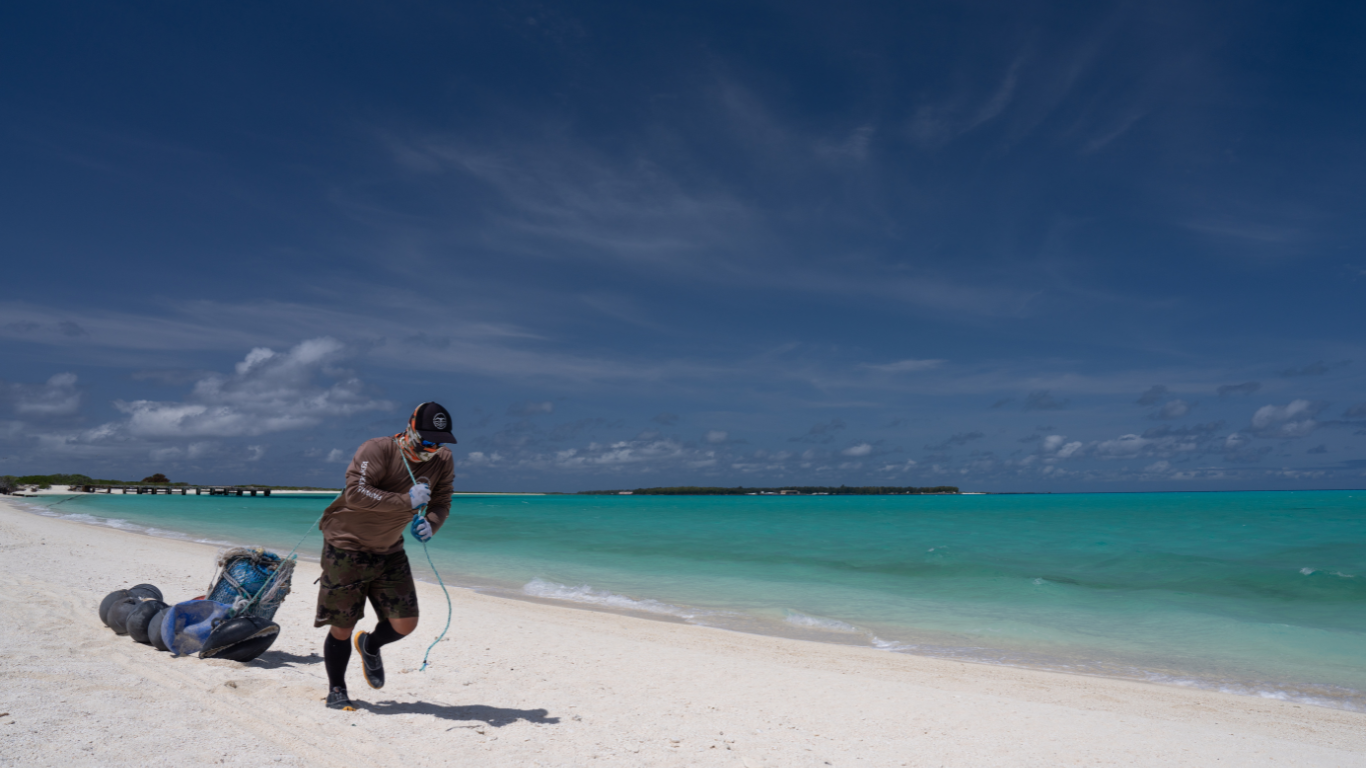
On Earth Day, we finished the final five 300-meter segments of our shoreline debris accumulation survey at Eastern Island. It's a stretch of shoreline that looks like a postcard — turquoise waters, nesting seabirds, monk seals lounging in the sun, and not a human footprint in sight.
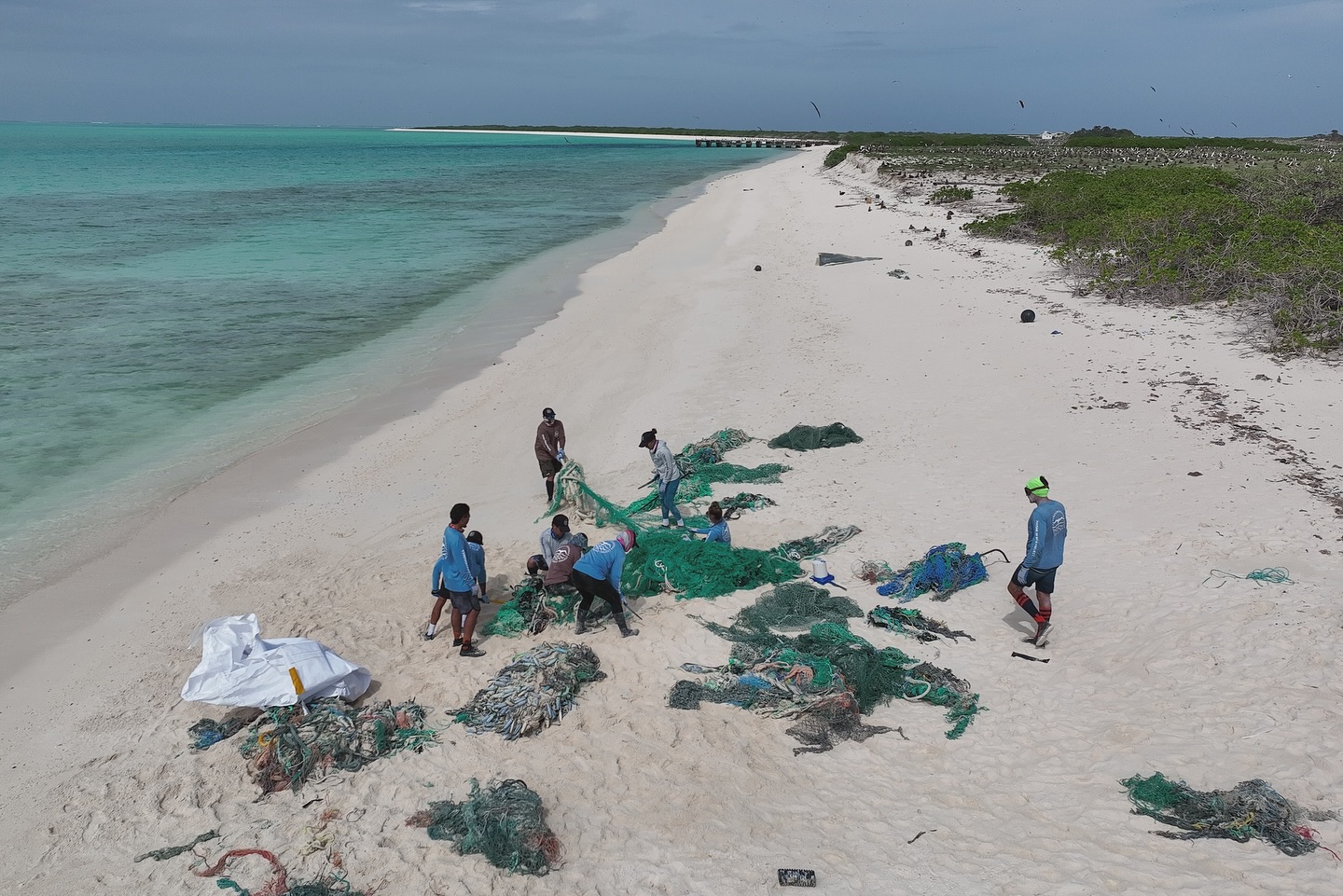
Until you look closer. Ghost nets. Plastic floats. Lonely slippers with no partners. Toothbrushes from who-knows-where. A surreal clash of pristine wilderness and relentless human pollution. It's heartbreaking and beautiful. And it's why we're here.
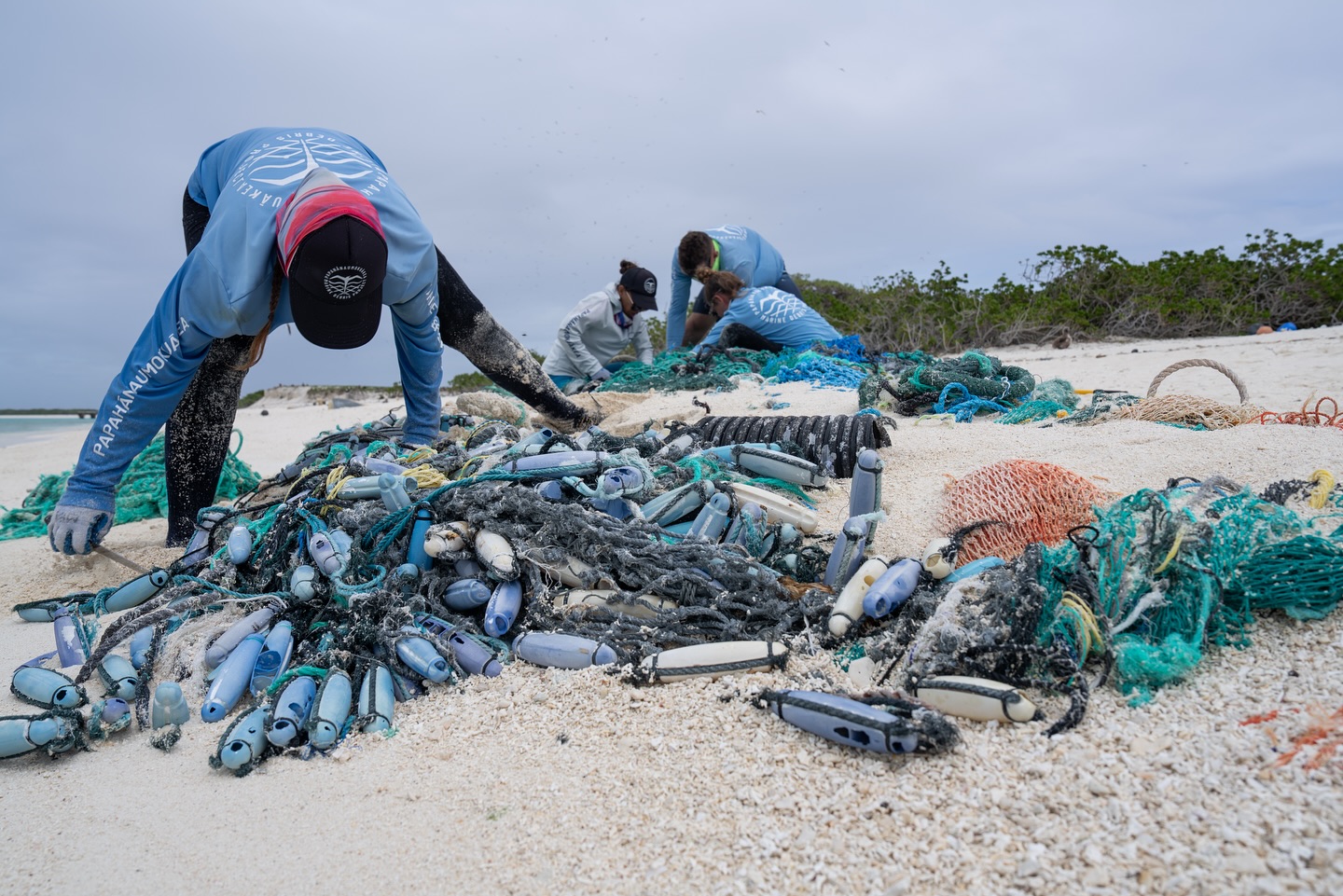
Our work may not come with trending hashtags or rack up a million likes, but it's part of a larger, laser-focused mission: to protect Papahānaumokuākea from the constant assault of marine debris that threatens its fragile ecosystems. The kind of debris that travels across the open ocean, only to land here, in one of the most sacred and ecologically important places on Earth.
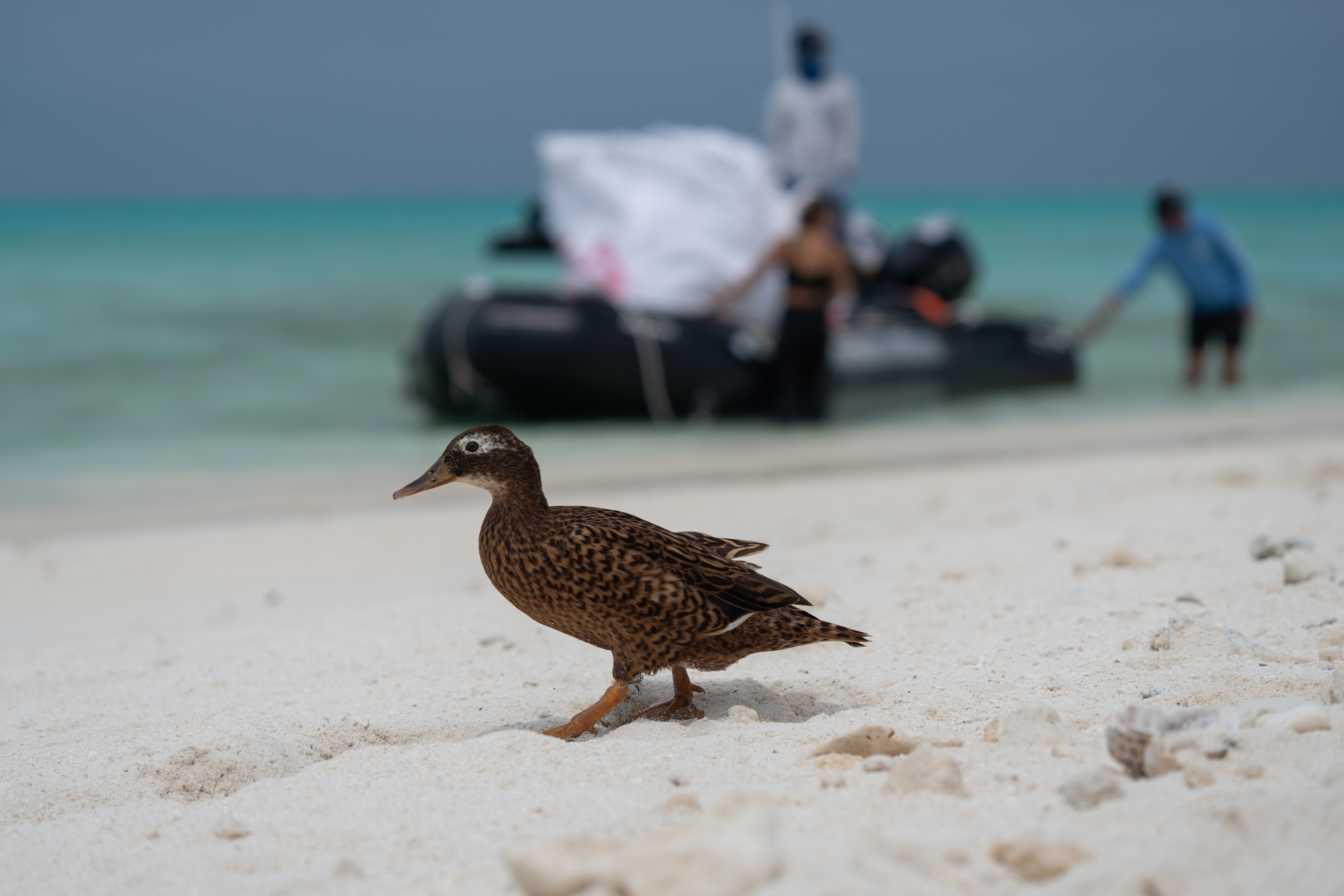
By removing debris from both reefs and shorelines, we're not just cleaning up — we're clearing the way for native species to thrive, creating space for monk seals to raise their pups, for corals to breathe and grow. We're collecting vital data that will help drive future conservation efforts. We're not here for the glory (though we wouldn't mind a rest day and a back massage). We're here because this place matters. Because this work matters. We believe that the most meaningful contribution we can make to the planet is to show up, year after year, mission after mission, net after net, and do the hard, unglamorous, rewarding work it takes to keep this place wild, beautiful, and alive.
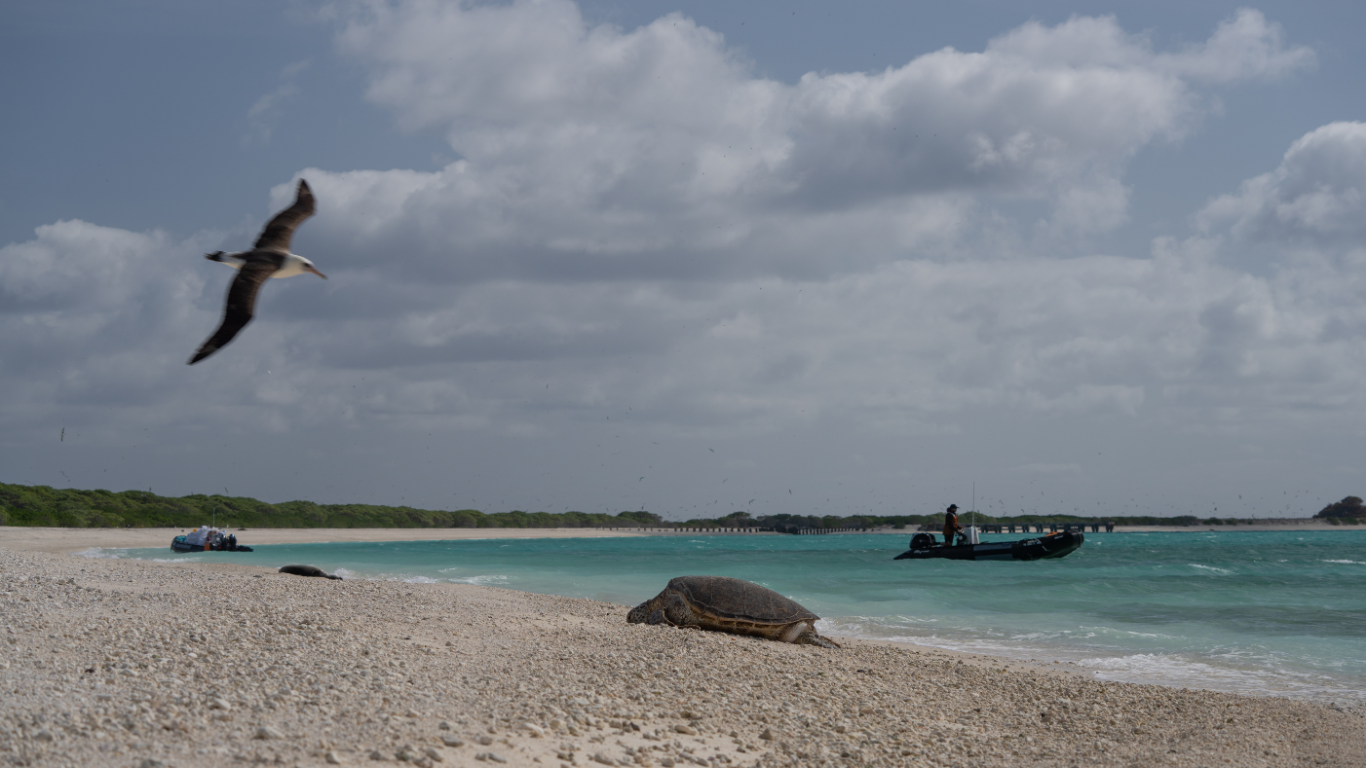
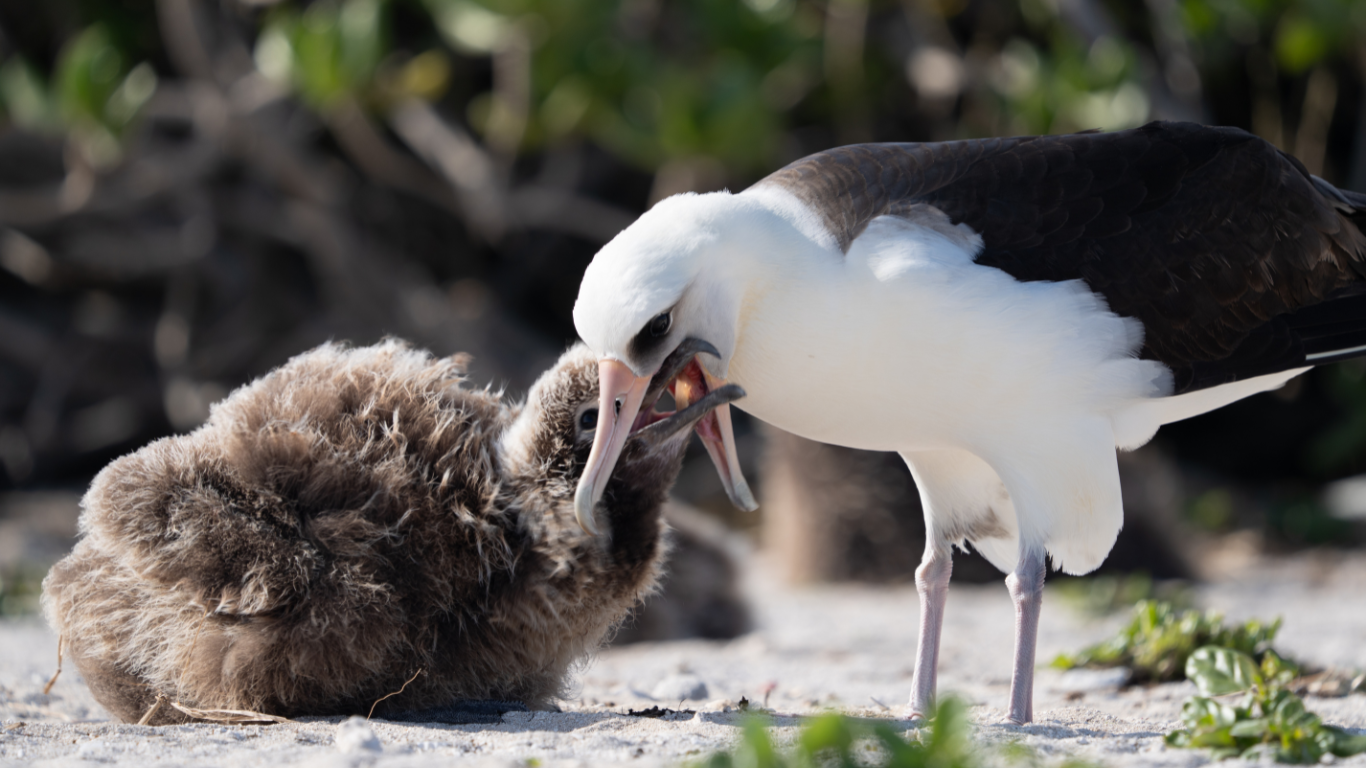
So, from all of us here in Papahānaumokuākea, Happy Earth Day! Weʻll celebrate the only way we know how, by hauling another net.
For those of you keeping score at home: 3,125 pounds removed today, 25,110 pounds removed total. And counting.
Today's ʻŌlelo Noʻeau, courtesy of Kauʻi Aguiar:
ʻŌlelo Noʻeau o ka lā: ʻAʻohe hana nui ke alu ʻia
Translation: No task is too big when done together by all
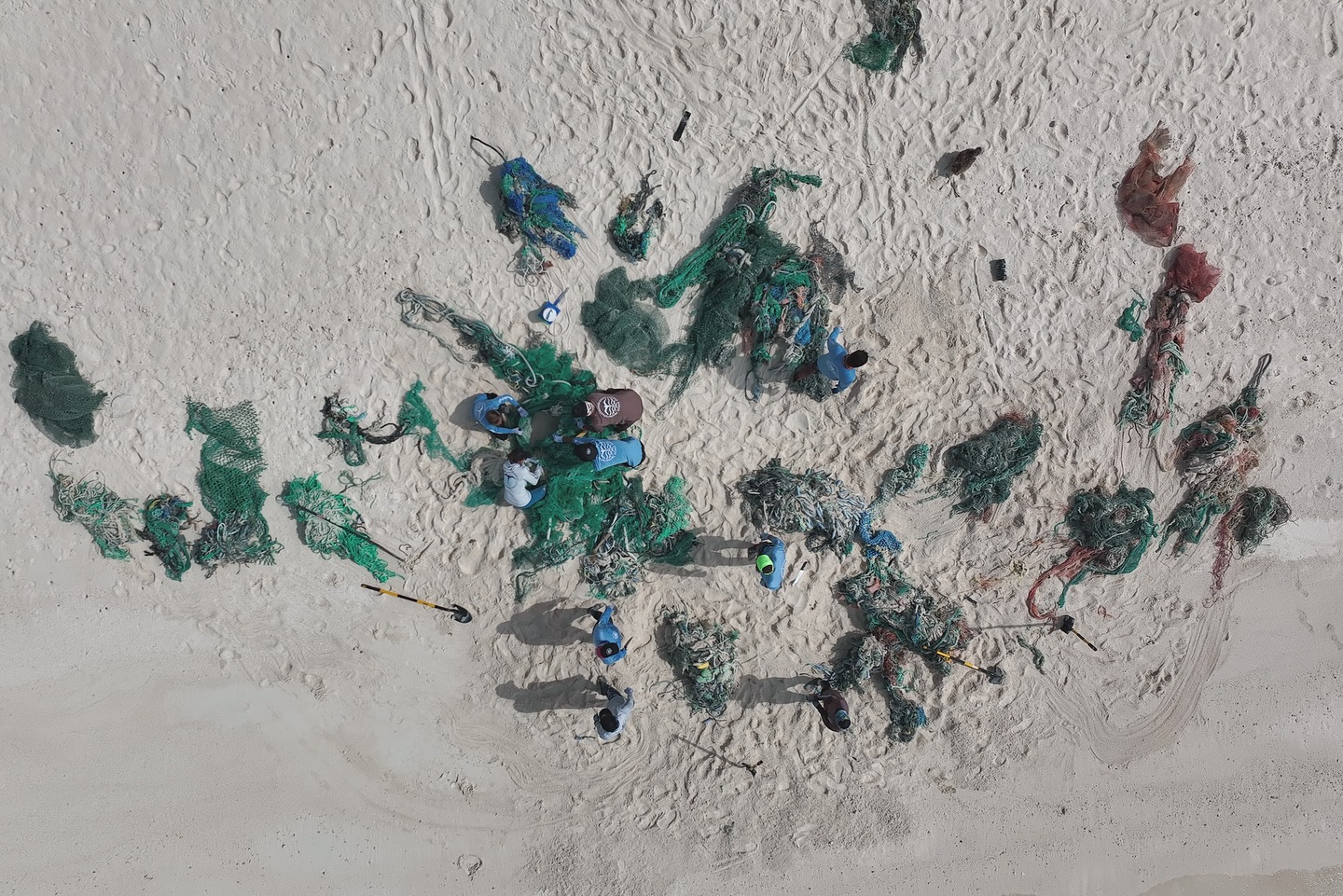
Blurb: Our team is approaching nearly a week, here, on Kuaihelani. Everyday we embark on new challenges together. When looking across the sand at the amount of trash, the feat can be daunting. It is amazing to see what we can accomplish when we share the same passions, when we share the same love for this space.
ʻŌlelo o ka lā: Aloha
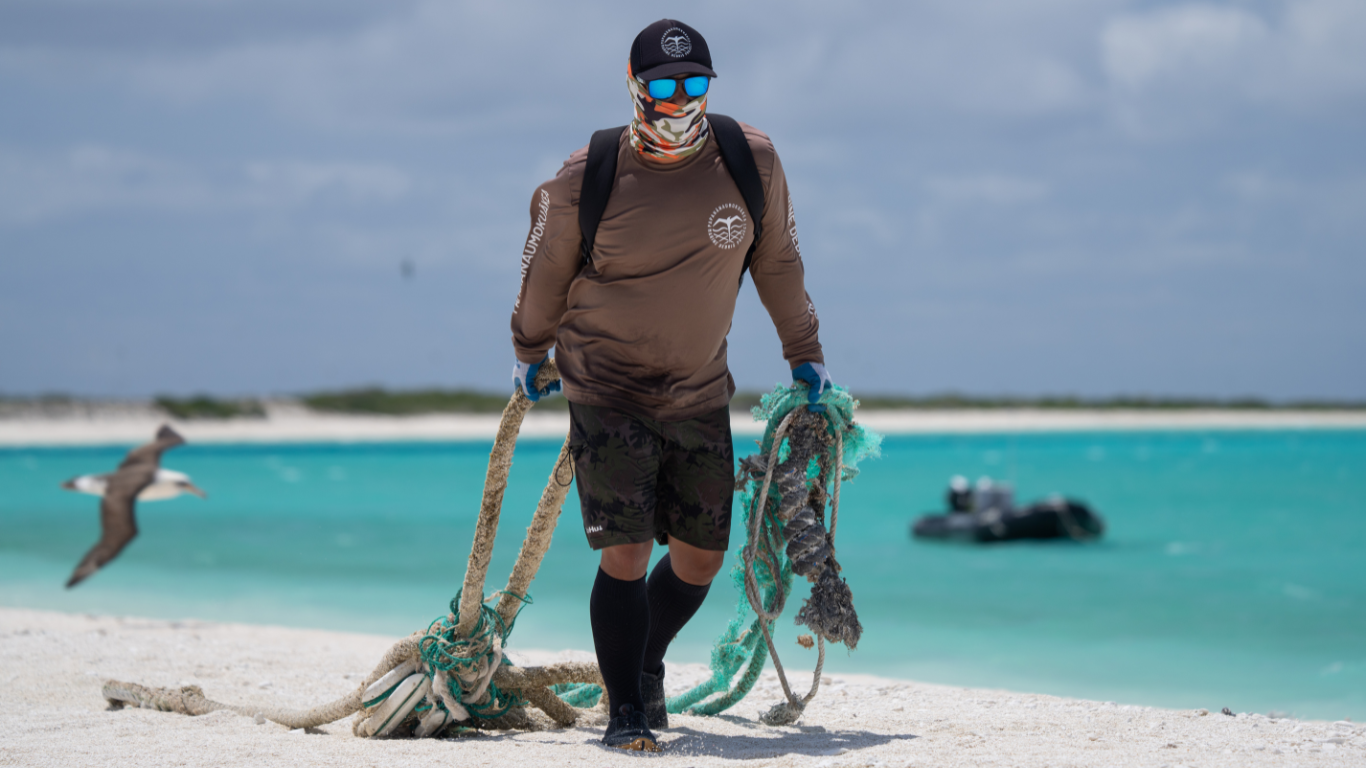
Translation: Love
Blurb: The PMDP crew would not be able to do this job without love. We sweat, we bleed, we handle varying climates and weather forecasts, and we love what we do. There is no better feeling.
Yes YOU can make everyday Earth Day!
